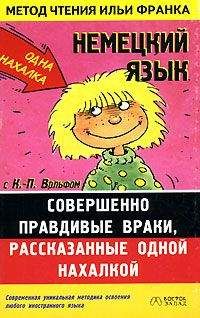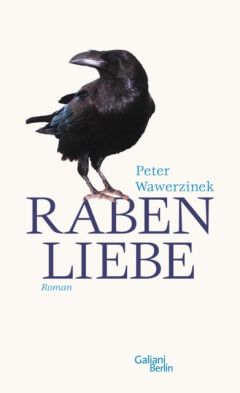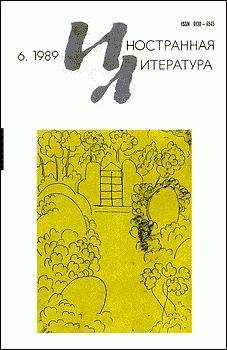Уильям Моэм - Английский язык с У. С. Моэмом. На окраине империи. Рассказы
"I guess I’ll go ashore," he said. "Get the boat out."
He climbed stiffly down the ladder (он слез неуклюже вниз по лестнице; stiff — негибкий; онемелый) and was rowed to a little cove (и /его/ отвезли на лодке в маленькую бухту; to row — грести; перевозить в лодке). The coconut trees came down to the water’s edge (кокосовые пальмы спускались к /самой/ кромке воды), not in rows (не рядами), but spaced out with an ordered formality (но расположившись в каком-то установленном порядке; to space out — размещать/ся/с промежутками; ordered — упорядоченный; formality — формальность). They were like a ballet of spinsters (они были словно балет из старых дев), elderly but flippant (пожилых, но /в то же время/ легкомысленных), standing in affected attitudes (застывших: «стоящих» в неестественных позах) with the simpering graces of a bygone age (с жеманной грацией минувших лет; age — возраст; век;период). He sauntered idly through them (он прогуливался праздно между ними; through — через), along a path that could be just seen winding its tortuous way (по тропинке, которая бежала еле приметной змейкой по своему извилистому пути: «которую можно было увидеть лишь /благодаря тому, что она/ вилась по своему извилистому пути»), and it led him presently to a broad creek (и она привела его вскоре к широкой речке). There was a bridge across it (через нее был /перекинут/ мост; across — поперек), but a bridge constructed of single trunks of coconut trees (но мост, сделанный: «построенный» из отдельных стволов кокосовых пальм), a dozen of them (дюжины стволов: «их»), placed end to end (положенных непрерывной цепью: «конец к концу») and supported where they met by a forked branch (и поддерживаемых в месте соединения: «/там/, где они встречались» раздвоенной веткой) driven into the bed of the creek (вбитой в дно речки). You walked on a smooth, round surface (вы ступали по гладкой, круглой поверхности), narrow and slippery (узкой и скользкой), and there was no support for the hand (и там не за что было ухватиться руками: «не было опоры для руки»). To cross such a bridge required sure feet and a stout heart (чтобы перейти такой мост требовалось твердо стоять на ногах и /иметь/ храброе сердце; sure — уверенный; foot — ступня). The skipper hesitated (шкипер колебался/медлил). But he saw on the other side (но он увидел на другой стороне), nestling among the trees (приютившийся среди деревьев; to nestle — уютно устроиться), a white man’s house (дом европейского типа: «белого человека»; white — белый; принадлежащий к европейской расе); he made up his mind (он решился) and, rather gingerly, began to walk (и, довольно осторожно, начал идти). He watched his feet carefully (он внимательно смотрел под ноги), and where one trunk joined on to the next (и где один ствол соединялся с другим: «со следующим») and there was a difference of level (и они были на разном уровне: «была разность высот»), he tottered a little (он немного покачивался; to totter — пошатнуться; идти неверной походкой).
ballet [`bxleI], require [rI`kwaIq], nestle [nesl]
He climbed stiffly down the ladder and was rowed to a little cove. The coconut trees came down to the water’s edge, not in rows, but spaced out with an ordered formality. They were like a ballet of spinsters, elderly but flippant, standing in affected attitudes with the simpering graces of a bygone age. He sauntered idly through them, along a path that could be just seen winding its tortuous way, and it led him presently to a broad creek. There was a bridge across it, but a bridge constructed of single trunks of coconut trees, a dozen of them, placed end to end and supported where they met by a forked branch driven into the bed of the creek. You walked on a smooth, round surface, narrow and slippery, and there was no support for the hand. To cross such a bridge required sure feet and a stout heart. The skipper hesitated. But he saw on the other side, nestling among the trees, a white man’s house; he made up his mind and, rather gingerly, began to walk. He watched his feet carefully, and where one trunk joined on to the next and there was a difference of level, he tottered a little.
It was with a gasp of relief that he reached the last tree (со вздохом облегчения он добрался до последнего дерева) and finally set his feet on the firm ground of the other side (и в конце концов ступил: «поставил свои ступни» на твердую почву на другом берегу: «на другой стороне»). He had been so intent on the difficult crossing (он был так поглощен этим трудным переходом) that he never noticed anyone was watching him (что даже не заметил, /что/ кто-то наблюдал /за/ ним), and it was with surprise that he heard himself spoken to (и с удивлением он услышал, /что/ с ним разговаривают).
"It takes a bit of nerve to cross these bridges (нужно: «требуется» немного смелости, чтобы переходить по таким мостам; nerve— нерв; сила духа; смелость) when you’re not used to them (/особенно/ когда ты не привык к такому: «к ним»)."
He looked up and saw a man standing in front of him (он поднял глаза: «посмотрел вверх» и увидел мужчину, стоящего перед ним). He had evidently come out of the house which he had seen (очевидно, он вышел из того дома, который он видел).
"I saw you hesitate (я видел, /что/ вы колебались)," the man continued, with a smile on his lips (продолжал мужчина, улыбаясь: «с улыбкой на своих губах»), "and I was watching to see you fall in (и я наблюдал /за вами/, чтобы увидеть как вы упадете в /воду/)."
"Not on your life," said the captain (ни за что/не дождетесь, — сказал капитан), who had now recovered his confidence (который теперь обрел свою уверенность).
"I’ve fallen in myself before now (я /и/ сам падал раньше: «до настоящего времени»). I remember, one evening I came back from shooting (я помню, однажды вечером я вернулся: «пришел назад» с охоты; to shoot— стрелять), and I fell in, gun and all (и я упал, /вместе с/ ружьем и всем /остальным/). Now I get a boy to carry my gun for me (теперь я беру: «получаю» мальчика, чтобы носить ружье: «носить мое ружье за меня»)."
intent [In`tent], surprise [sq`praIz], recover [rI`kAvq]
It was with a gasp of relief that he reached the last tree and finally set his feet on the firm ground of the other side. He had been so intent on the difficult crossing that he never noticed anyone was watching him, and it was with surprise that he heard himself spoken to.
"It takes a bit of nerve to cross these bridges when you’re not used to them."
He looked up and saw a man standing in front of him. He had evidently come out of the house which he had seen.
"I saw you hesitate," the man continued, with a smile on his lips, "and I was watching to see you fall in."
"Not on your life," said the captain, who had now recovered his confidence.
"I’ve fallen in myself before now. I remember, one evening I came back from shooting, and I fell in, gun and all. Now I get a boy to carry my gun for me."
He was a man no longer young (он был уже не молод: «он был человеком уже не молодым»), with a small beard, now somewhat grey (с маленькой бородкой, уже седеющей: «теперь слегка седой»), and a thin face (и худым лицом). He was dressed in a singlet, without arms (на нем была майка: «он был одет в майку без рукавов»; singlet — майка; нижняя трикотажная рубашка, плотно облегающая тело; arm — рука/от кисти до плеча/;рукав), and a pair of duck trousers (и парусиновые брюки; pair — пара). He wore neither shoes nor socks (на нем не было: «он не носил» ни обуви, ни носков). He spoke English with a slight accent (он говорил по-английски с легким акцентом).
"Are you Neilson?" asked the skipper (вы Нилсон? спросил шкипер).
"I am (да, я)."
"I’ve heard about you (я слышал о вас). I thought you lived somewheres round here (я /так и/ думал, /что/ вы живете где-то здесь неподалеку; somewheres/разг./ =somewhere)."
The skipper followed his host into the little bungalow (шкипер последовал за хозяином в /его/ небольшое бунгало; host— хозяин, человек, принимающий гостей) and sat down heavily in the chair (и тяжело опустился: «сел» в кресло) which the other motioned him to take (которое Нилсон предложил ему занять: «взять»; other— другой, второй;to motion— показывать жестом). While Neilson went out to fetch whisky and glasses (пока Нилсон выходил, чтобы принести виски и стаканы) he took a look round the room (он осмотрел комнату; to take a look— взглянуть;round— вокруг). It filled him with amazement (она поразила его: «наполнила его изумлением»). He had never seen so many books (он никогда /не/ видел так много книг). The shelves reached from floor to ceiling on all four walls (/книжные/ полки тянулись от пола до потолка по всем четырем стенам), and they were closely packed (и они были битком набиты: «плотно/тесно упакованы»). There was a grand piano littered with music (там был рояль, заваленный нотами;to litter— изобиловать;music— музыка; ноты), and a large table on which books and magazines lay in disorder (и большой стол, на котором книги и журналы лежали в беспорядке). The room made him feel embarrassed (он даже растерялся от всего этого: «эта комната заставила его почувствовать /себя/ растерянным»; to embarrass— смущать, приводить в замешательство). He remembered that Neilson was a queer fellow (он вспомнил, что Нилсон был чудаком: «странным парнем»). No one knew very much about him (о нем было мало что известно: «никто о нем /не/ знал очень много»), although he had been in the islands for so many years (хотя он /уже и/ прожил: «был» на этих островах так много лет), but those who knew him agreed that he was queer (но те, кто его знал, все считали, что он был странным; to agree— соглашаться; сходиться во взглядах). He was a Swede (он был шведом).
neither [`naIDq], slight [slaIt], bungalow [`bANgqlqu]
He was a man no longer young, with a small beard, now somewhat grey, and a thin face. He was dressed in a singlet, without arms, and a pair of duck trousers. He wore neither shoes nor socks. He spoke English with a slight accent.
"Are you Neilson?" asked the skipper.
"I am."
"I’ve heard about you. I thought you lived somewheres round here."
The skipper followed his host into the little bungalow and sat down heavily in the chair which the other motioned him to take. While Neilson went out to fetch whisky and glasses he took a look round the room. It filled him with amazement. He had never seen so many books. The shelves reached from floor to ceiling on all four walls, and they were closely packed. There was a grand piano littered with music, and a large table on which books and magazines lay in disorder. The room made him feel embarrassed. He remembered that Neilson was a queer fellow. No one knew very much about him, although he had been in the islands for so many years, but those who knew him agreed that he was queer. He was a Swede.
"You’ve got one big heap of books here (да у вас тут просто куча книг: «одна большая куча»)," he said, when Neilson returned (сказал он, когда Нилсон вернулся).
"They do no harm," answered Neilson with a smile (они не приносят вреда, ответил Нилсон с улыбкой).
"Have you read them all?" asked the skipper (вы все их прочитали? спросил шкипер).
"Most of them (большую часть)."



